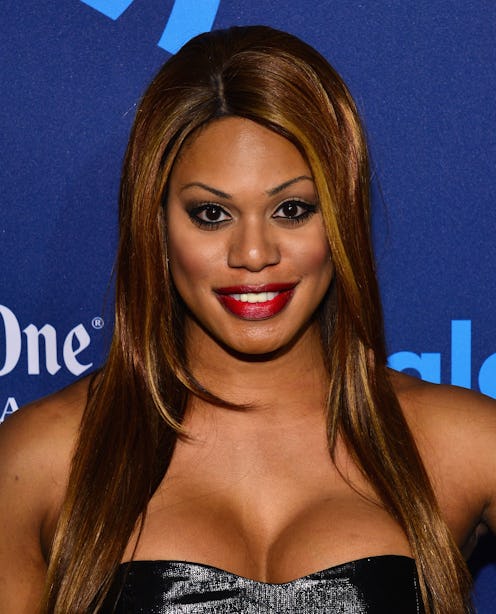Entertainment
'OITNB's Laverne Cox Talks Stigma's Damage
The press following Orange Is the New Black's first season has been a third-wave feminist hotbed of discussion about the representation of the LGBT community and people of color. At the center of that discussion has stood Laverne Cox, the beautiful trans actress who portrays a trans character of color on the show. Cox has been speaking quite a bit about trans issues of late, and she recently joined fellow trans activist Janet Mock in a HuffPo Live chat. They discussed a number of things but focused on one issue overall: Namely, the ways in which being attracted to trans women is still being portrayed in ugly and destructive ways.
Trans issues in general are being discussed more openly and often more than ever before — Chelsea Manning and that new CW show starring a trans character being two notable examples, with DJ Mister Cee's transexual prostitution saga being the most recent to spark discussion.
Along with Mister Cee's proclamation that he occasionally "get[s] the urge to have fellatio with a transsexual" while not considering himself gay, the long-running stigmatization of men attracted to transsexual women has come to the forefront. This is 2013, yet somehow we live in a world where we're still judging people by who they're attracted to.
It's a sadly common sight in television and film: A man engages in sexual activity with a trans woman, only to be ridiculed afterword (either by himself or by his peers) when the character's trans identity is revealed. Since the media has always been and remains to be a reflection of our society's habits, it's a pretty telling scene.
Cox and Mock addressed this in their discussion, highlighting the detrimental effects this stigma has on trans women and their views of themselves. Mock wrote about the issue in an essay on her site, saying:
Many men are attracted to women, and trans women are amongst these women...The shame that society attaches to these men, specifically attacking their sexuality and shaming their attraction, directly affects trans women. It affects the way we look at ourselves. It amplifies our body-image issues, our self-esteem, our sense of possibility, of daring for greatness, of aiming for something or somewhere greater.
Cox elaborated:
There’s consistently an erasure of trans identity when we have these discussions. The reason I’m here is because whenever we have these discussions, trans women’s voices are not included… The extent to which men who date us or are attracted to us are stigmatized is so intense.
The fact that Mister Cee's sexual interactions with trans women is calling into question his entire sexual identity — and that the status of said sexual identity still matters to so many — is extremely telling about where we are as a society.
And for trans women everywhere — not just the ones Mister Cee interacted with — it can be a devastating and dehumanizing blow.
